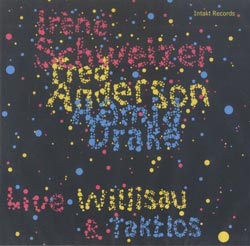
Out of Stock
Quantity in Basket: None
Log In to use our Wish List
Shipping Weight: 5.00 units
Sample The Album:
Irène Schweizer-piano
Fred Anderson-saxophone
Hamid Drake-drums
Click an artist name above to see in-stock items for that artist.
UPC: 7640120191047
Label: Intakt
Catalog ID: ITK104.2
Squidco Product Code: 7564
Format: CD
Condition: New
Released: 2007
Country: Switzerland
Packaging: Jewel Tray
Recorded August 28, 2004 at Jazzfestival Willisau by Schweizer Radio DRS2 and March 28, 1998 at Taktlos-Festival Zürich.
"When Schweizer and Drake play together, they have impeccable communication. It is such an elegant interaction, so close and intimate and loving, that the thought of adding another player is at first off-putting. But then Fred Anderson is not just another player. He's Hamid Drake's oldest playmate, a mentor and supporter and bosom-buddy. Their relationship literally extends back to when Hamid was a kid, and over the last decade they've played together more frequently than in the previous one. Two deeply musical souls from Monroe, Louisiana, who made their lives in Chicago and who now consider the world their stage. Bringing Anderson into their relatively young relationship, Drake and Schweizer extended the range of experiences they could draw on. In essence, Schweizer joins them, not changing their interaction dynamic, but intensifying it. Her deeply rhythmic playing complements their joint rhythms perfectly - more so, to be truthful, than some other pianists with whom they have collaborated - and at points in their trios they amalgamate into a single being, a will unfolding in real time. The South African motifs that creep in from Schweizer are unexpectedly complements to Anderson's splintered and hybridized modal lines, underscored by Drake's sensitive frame-drumming or explosive drum-set."John Corbett, from the liner notes
Artist Biographies
• Show Bio for Fred Anderson "Fred Anderson (March 22, 1929 - June 24, 2010) was an American jazz tenor saxophonist who was based in Chicago, Illinois. Anderson's playing was rooted in the swing music and hard bop idioms, but he also incorporated innovations from free jazz. Anderson was also noted for having mentored numerous young musicians. Critic Ben Ratliff called him "a father figure of experimental jazz in Chicago". Writer John Corbett referred to him as "scene caretaker, underground booster, indefatigable cultural worker, quiet force for good." In 2001, author John Litweiler called Anderson "the finest tenor saxophonist in free jazz/underground jazz/outside jazz today." Anderson was born in Monroe, Louisiana. When he was ten, his parents separated, and he moved to Evanston, Illinois, where he initially lived with his mother and aunt in a one-room apartment. When Anderson was a teenager, a friend introduced him to the music of Charlie Parker, and he soon decided he wanted to play saxophone, purchasing his first instrument for $45. He listened to Lester Young, Johnny Hodges, Dexter Gordon, Gene Ammons, and Illinois Jacquet, all of whom would influence his playing. He also heard Young and Parker in concert on multiple occasions. Unlike many musicians at the time, Anderson did not play with dance bands or school ensembles, and instead focused on practicing, taking private lessons, and studying music theory at the Roy Knapp Conservatory in Chicago, all the while supporting his family by working as a waiter. He also began making an effort to develop a personal sound on his instrument, with the goal of combining Ammons' "big sound" with Parker's speed. Regarding Parker's influence, Anderson stated: "I tried to figure out how he was doing certain things - not so much the notes that he was playing. He had a unique way about placing things." He also recalled: "Charlie Parker was one of the freest musicians I had ever heard... [his] technique was superb. Each one of the notes would just come out and hit you... His music was so involved. It was hard. It's still hard." At around this time, he began to develop a series of exercises which he incorporated into his daily practice routine, and which eventually became a book titled "Exercises for the Creative Musician". In the early 1960s, Anderson began listening to and studying the music of Ornette Coleman, and immediately related Coleman's playing to that of Charlie Parker. He recalled: "When I heard Ornette Coleman back in those days... I knew exactly what he was doing. It wasn't strange to me. I knew exactly where he was coming from." At around this time, influenced by Coleman, he formed a piano-less band with trumpeter Bill Brimfield, with whom he had been practicing since 1957, bassist Bill Fletcher, and drummer Vernon Thomas, playing a mixture of bebop standards and Anderson originals. In 1963, Anderson began participating in weekly jam sessions in Chicago, where he met Roscoe Mitchell, Joseph Jarman, and Richard Abrams, with whom he began discussing the idea of forming a new organization to promote their music. In 1965, the AACM was born, with Anderson as one of its earliest members. (As per George E. Lewis, Anderson was not a charter member, but attended the early meetings and got in on the ground floor.) On August 16, 1965, Anderson played on the first AACM event as part of the Joseph Jarman Quintet, which also featured Brimfield as well as bassist Charles Clark and drummer Arthur Reed. In late 1966, Anderson participated in the recording of Jarman's debut album, Song For, and in 1968, he played on Jarman's As If It Were the Seasons. Both albums were released on the Delmark label. In the late 1960s, when many of his AACM colleagues moved to Europe, Anderson chose to remain behind, supporting his wife and three young children by working at a rug company, practicing his instrument, and heading the AACM's Evanston chapter with Brimfield. Around 1972 he formed the Fred Anderson Sextet, with trombonist George E. Lewis, reedist Douglas Ewart, bassist Felix Blackmon, drummer Hamid Drake (then known as Hank), and vocalist Iqua Colson, all of whom were much younger than Anderson. Paul Steinbeck of the University of Chicago wrote: "These performers were a full generation younger than Anderson and comparatively inexperienced, yet he granted them considerable creative agency as members of his band... The expressive multiplicity and non-hierarchic social structure promoted by Anderson made his 1970s band resemble a 'mutuality' - a special kind of collective enterprise that requires its members to achieve a 'high degree of autonomy' while maintaining a sense of 'full partner[ship]'... Anderson's inclusiveness and ardent support of his collaborators' creative development performed a crucial leveling function, partially erasing generational boundaries and also re-focusing the group on their autonomous, continually unfolding expressive aims." George E. Lewis recalled: "Fred let you play as long as you wanted, and you could try out anything." In February 1977, Anderson and Brimfield visited Europe, where they recorded Accents with the Austrian trio Neighbours (pianist Dieter Glawischnig, bassist Ewald Oberleitner, and drummer Joe Preininger). In May of that year, Anderson opened a venue in Chicago that he named the Birdhouse, named after Charlie Parker. Unfortunately, Anderson encountered resistance and harassment from officials and people in the neighborhood, who were suspicious of his motives, and he ended up closing the club a year later. In 1978, Anderson visited Europe again with a quintet, playing at the Moers festival, where he recorded Another Place, his first album as a leader. In 1979, he recorded Dark Day with Brimfield, bassist Steven Palmore, and drummer Hamid Drake, and The Missing Link with bassist Larry Hayrod, Drake, and percussionist Adam Rudolph. (The second album was not released until 1984.) In 1982, Anderson took over ownership of a bar in Chicago called the Velvet Lounge, and transformed it into a center for the city's jazz and experimental music scenes, hosting Sunday jam sessions and numerous concerts. The club expanded and relocated in the summer of 2006. According to John Fordham, "The venue became a spiritual home to many musicians who shared the uncommercial player's perennial need for an intimate space run by, and for, the people who cared." Regarding the environment at the Velvet Lounge, Paul Steinbeck wrote, "Under Anderson's supervision, participating musicians were encouraged to develop performance methodologies that were 'contributive, not competitive'... the musical and social practices that had characterized Anderson's bands since the 1960s were transmitted, in whole or in part, to a broader network of performers and listeners." Though he remained an active performer, Anderson rarely recorded for about a decade beginning in the early 1980s. (Recordings from this sparse period include Vintage Duets with drummer Steve McCall, recorded in 1980 but not released until 1994, and The Milwaukee Tapes Vol. 1, with Brimfield, Drake, and bassist Larry Hayrod, also recorded in 1980 but not released until 2000.) In 1990, however, he received the first Jazz Masters Fellowship from Arts Midwest, and by the mid-1990s, he resumed a more active recording schedule, both as a solo artist, and in collaboration with younger performers, such as pianist Marilyn Crispell (Destiny), with whom he toured in 1994, and often with familiar colleagues such as Hamid Drake and Bill Brimfield. In 1999, Anderson and Von Freeman appeared as soloists with a 30-piece orchestra in a performance of a work composed and conducted by Edward Wilkerson at the Chicago Jazz Festival. In 2002, the festival honored Anderson, and he appeared as a soloist with the NOW Orchestra, conducted by George E. Lewis, and featuring Bill Brimfield and Roscoe Mitchell. Meanwhile, the Velvet Lounge became internationally known, attracting artists from around the world. In 2005, the Vision Festival presented Fred Anderson Day in his honor, and in 2009, the Velvet Lounge hosted an 80th-birthday celebration featuring four sets of music from some of Chicago's top jazz artists. He continued to record and tour throughout the 2000s, and continued mentoring countless younger musicians, including Harrison Bankhead, Nicole Mitchell, and Dee Alexander, stating "My role in the city is to keep young musicians playing. I will always have a place for them to play." He died on June 24, 2010, at the age of 81, and was survived by two sons, Michael and Eugene (a third son, Kevin, predeceased him), as well as five grandchildren and six great-grandchildren. He was scheduled to perform the day he died." ^ Hide Bio for Fred Anderson • Show Bio for Hamid Drake "Hamid Drake (born August 3, 1955) is an American jazz drummer and percussionist. He lives in Chicago, IL but spends a great deal of time touring worldwide. By the close of the 1990s, Hamid Drake was widely regarded as one of the best percussionists in jazz and avant improvised music. Incorporating Afro-Cuban, Indian, and African percussion instruments and influence, in addition to using the standard trap set, Drake has collaborated extensively with top free-jazz improvisers. Drake also has performed world music; by the late 70s, he was a member of Foday Musa Suso's Mandingo Griot Society and has played reggae throughout his career. Drake has worked with trumpeter Don Cherry, pianist Herbie Hancock, saxophonists Pharoah Sanders, Fred Anderson, Archie Shepp and David Murray and bassists Reggie Workman and William Parker (in a large number of lineups) He studied drums extensively, including eastern and Caribbean styles. He frequently plays without sticks; using his hands to develop subtle commanding undertones. His tabla playing is notable for his subtlety and flair. Drake's questing nature and his interest in Caribbean percussion led to a deep involvement with reggae." ^ Hide Bio for Hamid Drake
11/20/2024
Have a better biography or biography source? Please Contact Us so that we can update this biography.
11/20/2024
Have a better biography or biography source? Please Contact Us so that we can update this biography.
Track Listing:
1. A Former Dialogue 21:59
2. Trinity 28:25
3. Schwandrake 10:16
4. Willisau 7:41
Intakt
Improvised Music
Jazz
February 2007
Chicago Jazz & Improvisation
Trio Recordings
Instant Rewards
Search for other titles on the label:
Intakt.





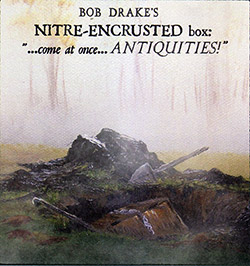




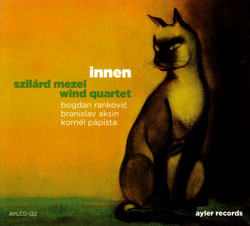
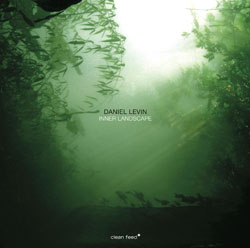
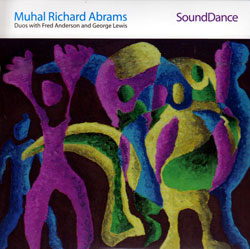
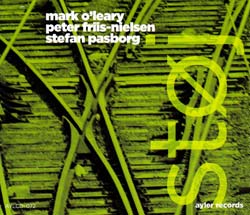
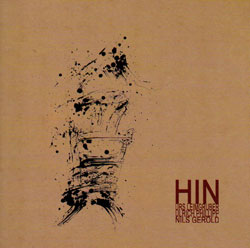
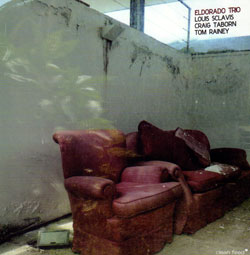
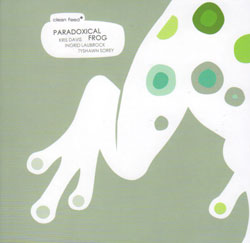
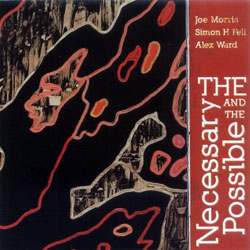
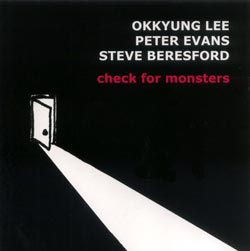
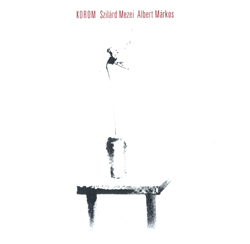
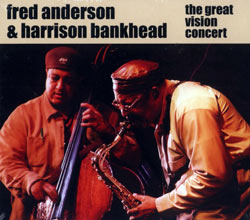
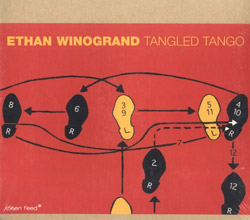
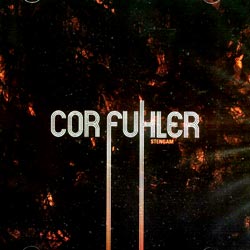
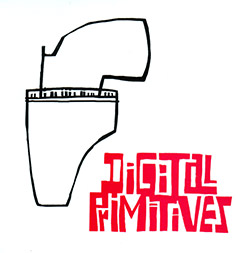
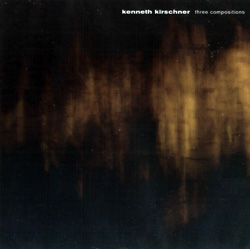
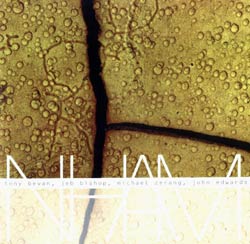
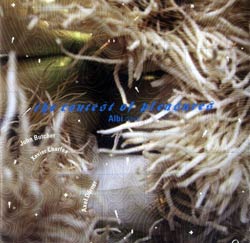
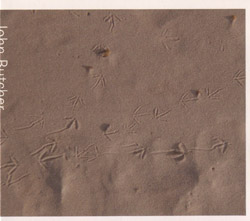


![Guy, Barry / Ken Vandermark: Occasional Poems [2 CDs]](https://www.teuthida.com/productImages/misc4/34849.jpg)
![Novoa / Carter / Mela Trio: Vol.1 [VINYL]](https://www.teuthida.com/productImages/misc4/35236.jpg)


![Elephant9 : Mythical River [VINYL]](https://www.teuthida.com/productImages/misc4/34624.jpg)
![Evans, Peter (Evans / Eldh / Black): Extra [VINYL]](https://www.teuthida.com/productImages/misc4/35279.jpg)

![McPhee, Joe: Straight Up, Without Wings [BOOK]](https://www.teuthida.com/productImages/misc4/35454.jpg)
![Jeck, Philip: rpm [2 CDs]](https://www.teuthida.com/productImages/misc4/35455.jpg)













![Barker / Parker / Irabagon: Bakunawa [VINYL]](https://www.teuthida.com/productImages/misc4/35533.jpg)
![Blaser, Samuel / Marc Ducret / Peter Bruun: Dark Was The Night, Cold Was The Ground [VINYL 10-inch]](https://www.teuthida.com/productImages/misc4/35492.jpg)








![Warren, Kenny (Warren / Hoffman / Ellman): Sweet World [VINYL]](https://www.teuthida.com/productImages/misc4/35451.jpg)




![Blake, Ran / Dave Knife Fabris: Live Amsterdam 2006, First Visit [CD + POSTCARDS]](https://www.teuthida.com/productImages/misc4/35275.jpg)













![DNS: Taking Big Bites Of The Khandas Three Cafes Deep [2 CDs]](https://www.teuthida.com/productImages/misc4/35334.jpg)




![Cleaver, Gerald: The Process [VINYL]](https://www.teuthida.com/productImages/misc4/34966.jpg)




![Alva Noto: HYbr:ID II [VINYL 2 LPs]](https://www.teuthida.com/productImages/misc4/35201.jpg)

![Baron, Derek / Luke Martin: Distinct and Concealed [CASSETTE + DOWNLOAD]](https://www.teuthida.com/productImages/misc4/35079.jpg)

![Lyle, Erica Dawn : Colonial Motels [CASSETTE + DOWNLOAD]](https://www.teuthida.com/productImages/misc4/35080.jpg)









![Sanna, Claudio: Compositori Sardi Contemporanei II [2 CDs]](https://www.teuthida.com/productImages/misc4/35317.jpg)







![Zurria, Manuel: Fame di Vento [3 CDs]](https://www.teuthida.com/productImages/misc4/35167.jpg)

![Granberg, Magnus / Nattens Inbrott / Skogen: Holde Traume, Kehret Wieder! [2 CDs]](https://www.teuthida.com/productImages/misc4/35038.jpg)
![Frey, Jurg: Outermost Melodie [2 CDs]](https://www.teuthida.com/productImages/misc4/35039.jpg)

![Pavone, Jessica: Reverse Bloom [VINYL]](https://www.teuthida.com/productImages/misc4/34895.jpg)




![Modney (Modney / Wooley / Gentile / Roberts / Pluta / Symthe / ...): Ascending Primes [2 CDs]](https://www.teuthida.com/productImages/misc4/34852.jpg)









![Elephant9 with Terje Rypdal: Catching Fire [VINYL 2 LPs]](https://www.teuthida.com/productImages/misc4/35355.jpg)
![Deerlady (Obomsawin, Mali / Magdalena Abrego): Greatest Hits [VINYL]](https://www.teuthida.com/productImages/misc4/34876.jpg)




![Haino, Keiji: Black Blues [2 CDs]](https://www.teuthida.com/productImages/misc4/35109.jpg)



![Surplus 1980: Illusion of Consistency [CD]](https://www.teuthida.com/productImages/misc4/35069.jpg)
![Staiano, Moe: Away Towards the Light [VINYL + DOWNLOAD]](https://www.teuthida.com/productImages/misc4/35037.jpg)



![Caveira (Gomes / Sousa / Abras / Ferrandini): Ficar Vivo [VINYL]](https://www.teuthida.com/productImages/misc4/34643.jpg)
![Gregg, J. J. / David Van Auken: Lunar Prairie [CD w/ DOWNLOAD]](https://www.teuthida.com/productImages/misc4/34611.jpg)

![Coultrain: Mundus [VINYL]](https://www.teuthida.com/productImages/misc4/32439.jpg)
![Mattin: Songbook #6 [VINYL]](https://www.teuthida.com/productImages/misc4/27317.jpg)
![Punkappella: Wake Up [7-inch VINYL]](https://www.teuthida.com/productImages/misc4/17519.jpg)
![Residents, The: WARNING: UNiNC.: Live And Experimental Recordings 1971-1972 [VINYL 2 LPs]](https://www.teuthida.com/productImages/misc4/31521.jpg)
![Coultrain: Phantasmagoria [VINYL]](https://www.teuthida.com/productImages/misc4/30142.jpg)
![Lennon, Sean Ono: Asterisms [VINYL]](https://www.teuthida.com/productImages/misc4/34517.jpg)

![Coley, Byron: Dating Tips for Touring Bands [VINYL]](https://www.teuthida.com/productImages/misc4/17906.jpg)

![Lost Kisses: My Life is Sad & Funny [DVD]](https://www.teuthida.com/productImages/misc4/lostKissesDVD.jpg)